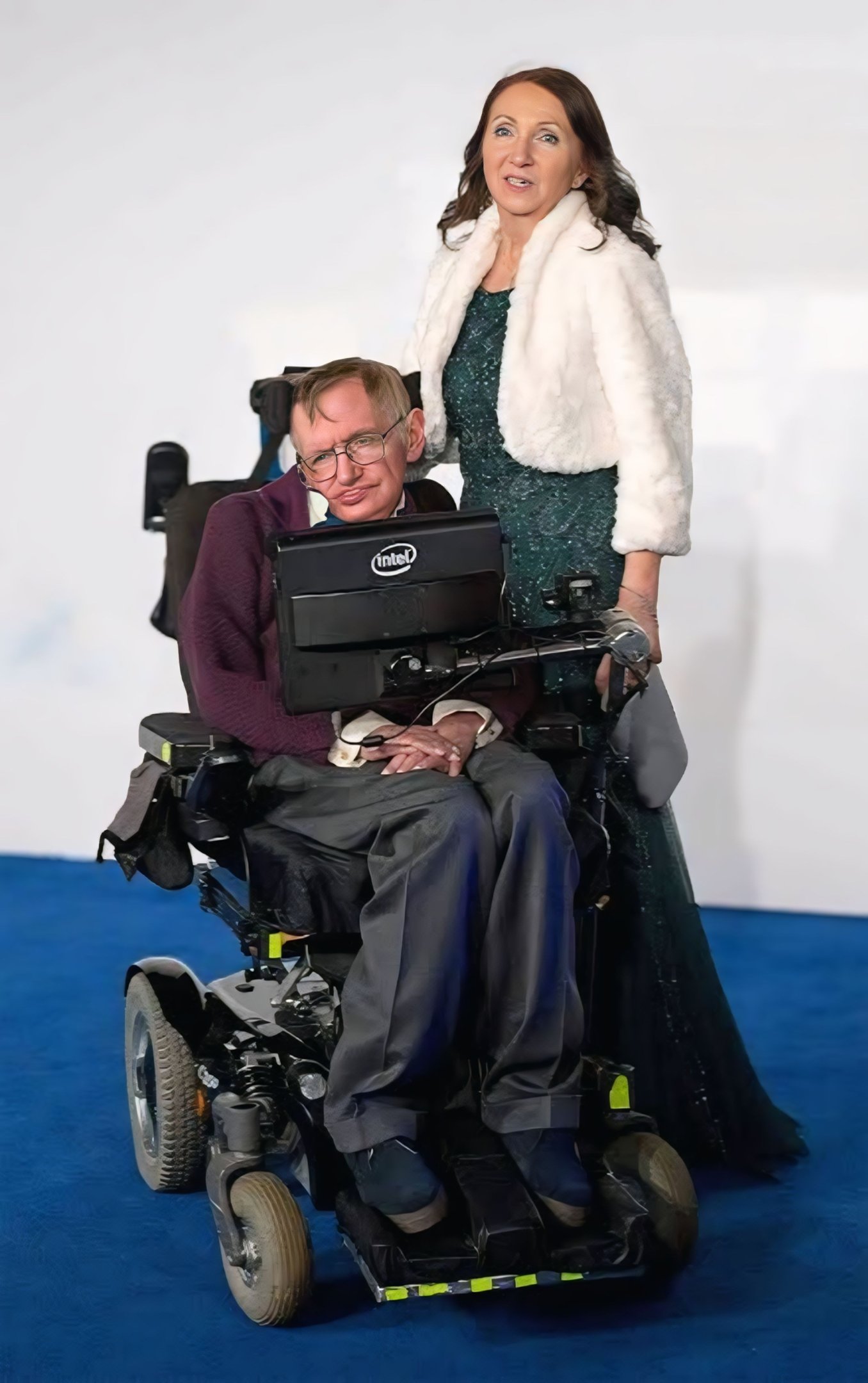She Saved Him, He Changed the World
The Story of Stephen Hawking
SUCCESS STORYIMPOSSIBLELOVE
Thrive Vision
7/23/20253 min read


In 1985, one of the smartest men alive today, Stephen Hawking, slipped into a coma.
Physicians huddled around his hospital bedside and told his wife, Jane Hawking:
"It's time to let go. Pull the plug."
They believed the end was near. That this brilliant physicist, already living with ALS for over two decades, had no fight left. That keeping him alive would only prolong pain.
But Jane?
She didn’t accept that.
She stood firm, heart breaking, but unshaken.
“No,” she said. “He has more to do.”
She Said No When Everyone Else Gave Up
That one decision to hold on, to believe changed everything.
Stephen survived.
He lost his natural voice as a result of a tracheotomy, but not his will. His body weakened, but his mind that incredible, intricate, brilliant mind was still running on all cylinders.
He couldn't even speak at first. But later, thanks to technology, he would get back a digital voice. And with it, he would deliver the world something no one could anticipate…
The Book That Changed Science
Only three years after narrowly surviving death, in 1988, Stephen Hawking wrote A Brief History of Time.
It wasn't merely a book it was revolution.
He took black holes, relativity, the Big Bang topics previously the exclusive domain of elite physicists and made them comprehensible to millions of ordinary readers.
The book was a world phenomenon, selling more than 25 million copies in 40 languages. It was on the Sunday Times bestseller list for 237 weeks a record in itself.
All from a man who couldn't move, couldn't speak, but never lost his thoughts. Never lost his dreams.
What If She Had Said Yes?
This is what makes the decision by Jane Hawking so epic.
Imagine if she had said yes.
If she had gone along with the doctors.
If she had let heartbreak or fear determine the ending.
We would have been deprived of one of the greatest minds of the 20th century.
The world would never have seen A Brief History of Time read.
Millions of scientists, dreamers, and students could have never been inspired by his bravery.
That single decision didn't save a life it changed the trajectory of modern science and philosophy.
Love, Grit & Genius
Stephen and Jane's tale is not one of science alone.
It's one of faith.
Not necessarily religious faith but faith in the potential of human beings.
At a time when all hope seemed lost, Jane persevered.
And in response, Stephen ignited the world with wisdom.
He didn't merely endure he flourished.
He rewrote the book on what was possible for someone living with a debilitating disorder.
He demonstrated that disability doesn't equal inability.
And in the midst of it all, Jane stood with him battling battles none could see, bearing a burden none could carry, and emerging as the unheralded hero of one of science's most astonishing comeback tales.
Legacy Beyond Equations
Stephen Hawking's work in cosmology and quantum mechanics is the stuff of legend. His theories regarding black hole radiation, space-time singularities, and the creation of the universe are taught in classrooms and research facilities worldwide.
But maybe his most significant contribution wasn't a scientific hypothesis.
It was his life itself a living, breathing testament that the mind may be boundless even when the body is not.
That grit can surpass prognosis.
That love can conquer logic.
And that occasionally, refusing what's expected can alter the world.
The Real Superpower: Refusing to Give Up
Stephen once stated
"However hard things are, there is always something you can do and get on with."
These words strike harder when you recall that they were spoken by a man who typed with his cheek, spoke through a machine, and lived in a wheelchair but still ended up being an international icon of intelligence and strength.
But let's not forget: he was only given the chance to utter those words because Jane allowed him to live to say them.
Behind Every Great Mind.
We tend to remember Hawking as the genius in the chair.
The man who beat medical odds and became a national name.
But behind him stood Jane quietly, powerfully, unshakeably.
Her choice in that hospital room wasn't just about saving her husband.
It was about believing in what he could still be.
And from that, the world gained ideas that will echo throughout time.
So What Can We Learn From This?
Never underestimate the power of one decision.
Never think someone's story is finished even when the world tells you otherwise.
And never forget that behind some of the brightest lights in history, there's usually someone who didn't let them fade.
She saved him.
He changed science forever.
Inspiration
Explore success stories and motivational journeys today.
Growth
Vision
© 2025. All rights reserved.
